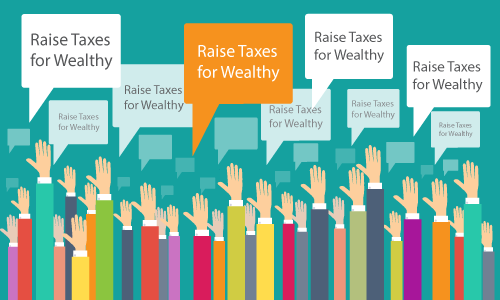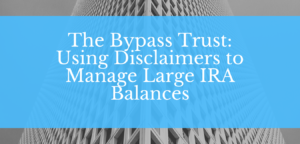Voters in Multiple States Choose Higher Taxes for the Wealthy

Of course, the big news from the election earlier this month was that Donald Trump shocked the world and defeated Hillary Clinton in the race to become the 45th president of the United States. However, there were several other important national, as well as local, election races and issues that were decided on November 8th. Not the least of which were several state measures aimed at raising taxes on high net worth individuals.
To that end, voters in both California and Maine decided that the rich needed to pay more taxes. In Maine, the vote to raise the state’s top tax rate from 7.15 percent to 10.15 percent was extremely close, passing by a narrow 50.4 percent to 49.6 percent margin. That means Maine will have the second highest top tax rate in the country in 2017, surpassing Oregon, which was number two in 2016 at 9.9 percent.
In California, meanwhile, the vote wasn’t even close, with 62 percent voting to extend temporary tax hikes already in place. Proposition 55 extended the hikes originally implemented in 2012 with Proposition 30. That means top earners, those who make $1 million or more a year, will continue to pay a tax rate of 13.3 percent at least until 2030. California will continue to have the highest tax rate for top earners in 2017.
So, while all signs point to Donald Trump lowering the federal tax rates, if you live in California or Maine and you’re a top earner, you won’t see any relief in the coming years in your state taxes.
http://www.forbes.com/sites/ashleaebeling/2016/11/10/voters-okay-state-income-tax-hikes-for-the-rich/#71480a7b16d0
Land Management: Conservation Easements
Land Management: Conservation Easements Real property–land and the home or other structures on it–often has special significance to the family that owns it, to the surrounding community or to the ecology of the area. It may have played a role in an historical event; provide habitat for wildlife; command a magnificent view; or offer access…
Personal Finance 101
Personal Finance 101 The subject of personal finance is very broad, but as a beginning, I would like to discuss what I consider the foundations of personal finance: Security, Stability, Growth and Protection & Management. Security Security to me means that I am prepared for the “hit by a bus” scenario. I have life insurance…
Saving for Retirement: 5 Steps to Building Significant Wealth
Saving for Retirement: 5 Steps to Building Significant Wealth Are you saving enough money for retirement? Do you know how much money you need to accumulate in order to retire? Are you concerned about how you should be saving for retirement? The simplicity of these questions can lead many people to believe that there is…
The Bypass Trust: Using Disclaimers to Manage Large IRA Balances
The Bypass IRA Trust: Using Disclaimers to Manage Large IRA Balances By Mary Kay Foss California CPA, December 2001Trying to fund a bypass trust can be problematic if clients only have a residence and a large retirement plan as their major assets. On the surface, a residence isn’t a good asset for a bypass trust…



